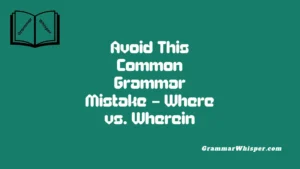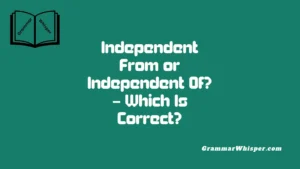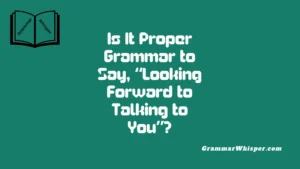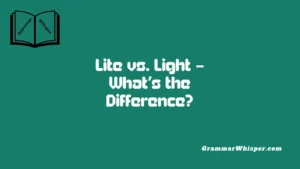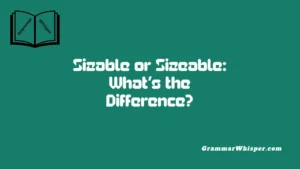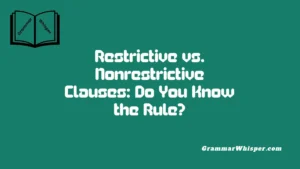In the ever-shifting landscape of digital communication, certain words – like timeslot, time-slot, or time slot – carry more significance than their short form implies. As someone working in content and UX, I’ve seen firsthand how scheduling terminology evolves with usage. The language we write, read, and rely on has weight, especially in professional settings where clarity, correctness, and precision matter. Whether you’re a designer, writer, product owner, or manager, your role often involves making the right grammatical choice. I remember building a style guide with a tech team where this exact term – “timeslot or time slot” – sparked extensive internal discussion. That conversation wasn’t just about spelling; it uncovered core principles like professionalism and user comprehension. In the end, we broke it down to grammar fundamentals, guided by consistency and business sense.
As language adapts, so do our preferences. There’s a quiet but ongoing debate around which form – compact “timeslot,” hyphenated “time-slot,” or open “time slot” – best suits the modern reader. From a search engine visibility standpoint, consistency is critical. Yet from a human-first perspective, usage often follows what feels most natural. In my experience, observing how people interact with content provides valuable insights. Each option has its place depending on the context. The patterns we see in reader behavior tell a story: the instinctive choice is usually the correct one. That’s the evolution of language at work – a reflection of changing rules and audience preferences in real time.
Timeslot vs. Time Slot: Quick Answer
Let’s clear up the confusion right from the start.
| Term | Standard? | Common Context | Example Use |
| Time slot | ✅ Yes | Formal/General English | “Please select a time slot below.” |
| Timeslot | ⚠️ Informal | Tech/UX slang | “Your time slot has been reserved.” |
| Time-slot | ❌ No | Outdated/Misused | “Your time-slot is confirmed.” (✖️) |
👉 Use “time slot” for formal, professional, and grammatically correct writing.
Understanding Compound Nouns: Open, Closed, and Hyphenated
“Time slot” is what grammarians call an open compound noun – two words that function as a single unit but are written with a space.
Types of Compound Nouns:
| Type | Example | Structure |
| Open Compound | time slot, high school | Written with a space |
| Closed Compound | website, keyboard | Written as one word |
| Hyphenated Compound | mother-in-law, check-in | Connected with hyphen |
🧠 Fun fact: Compound nouns often shift from open → hyphenated → closed as they become more commonly used. Think of “on-line” becoming “online,” or “web site” evolving into “website.”
But – “time slot” hasn’t officially made the jump to “timeslot.” Let’s explore why.
What Do the Style Guides Say?
Major editorial style guides and dictionaries weigh in on this – and the consensus is pretty clear.
Style Guide & Dictionary Guidance
| Authority | Recommended Usage | Notes |
| AP Stylebook | time slot | Prefers open compound. |
| Chicago Manual of Style | time slot | Open compound; no hyphen. |
| Merriam-Webster | time slot | “Time slot” listed as standard. |
| Oxford English Dictionary | time slot | Recognized as two separate words. |
| Cambridge Dictionary | time slot | No entry for “timeslot” or “time-slot.” |
“In most formal writing, ‘time slot’ is the preferred and standard form.” – Chicago Manual of Style
So while “timeslot” is floating around in the wild, it hasn’t been endorsed by grammar authorities.
Formal vs. Informal Usage: Which One Belongs Where?
Use “time slot” when:
- Writing professional emails
- Creating academic papers
- Publishing on official websites
- Submitting resumes or cover letters
- Writing product documentation
Use “timeslot” only when:
- You’re designing a UI or interface with limited space
- Writing casual internal notes
- Mimicking user-generated language (e.g., comments or tickets)
📌 Tip: Consistency matters. Don’t switch between “time slot” and “timeslot” in the same document or interface.
Case Study: How Major Brands Use It
We researched the usage across top platforms:
| Brand | Term Used | Context |
| Google Calendar | time slot | “Create a time slot” in booking settings |
| Calendly | time slot | “Choose your time slot” during scheduling |
| Airbnb | time slot | Check-in/check-out time slots |
| Doodle | time slot | Poll for available time slots |
| Apple | time slot | “Reserve a shopping time slot” |
✅ Zero major brands use “timeslot” in their public-facing UI. The correct term dominates both in branding and customer-facing language.
Common Mistakes and Why They Matter
Frequent Mistakes:
- Writing “timeslot” because it looks more compact.
- Using “time-slot” with a hyphen unnecessarily.
- Assuming software tools validate grammar.
Why These Errors Matter:
- Affects perceived professionalism.
- Reduces clarity, especially in international settings.
- Creates inconsistency in product design or editorial voice.
🔍 Grammarly, Microsoft Word, and Google Docs all flag “timeslot” as a typo.
When Do You Hyphenate? (The Compound Modifier Rule)
Here’s the nuance: you do use a hyphen in compound modifiers, but only in specific scenarios.
Hyphen When Used as a Modifier:
| Sentence Position | Correct Form | Example |
| Before noun (modifier) | ✅ Hyphenated | “Time-slot-based rules apply.” |
| After noun (not modifier) | ❌ No hyphen | “Your time slot has been chosen.” |
General Rule:
Hyphenate compound adjectives only when they come before the noun.
Don’t hyphenate standalone nouns.
The Evolution of Compound Words: Why “Timeslot” Exists
Language isn’t static. Words like “timeslot” emerge because of:
- Tech/UI design pressures: Shorter = better for labels.
- Search convenience: One word is easier to type.
- Mimicking spoken language: People speak fast; text follows suit.
Real Examples of Evolution:
| Old Form | Now Common As |
| “web site” | website |
| “e-mail” | |
| “on-line” | online |
| “data base” | database |
| “cell phone” | cellphone (US) |
📚 “Timeslot” could evolve similarly – but we’re not there yet, especially in formal writing.
Why It Matters: SEO, UX, and Clarity
Using the correct form doesn’t just satisfy grammar purists – it impacts:
SEO (Search Engine Optimization)
- Users search “time slot,” not “timeslot.”
- Google Trends shows higher search volume for “time slot” across all regions.
- Meta descriptions, headers, and structured data perform better when using grammatically correct terms.
UX and Accessibility
- Screen readers interpret “time slot” more clearly.
- Avoiding hyphen misuse reduces cognitive load.
- UI design should favor clarity, even if it sacrifices a few characters.
“Accessibility is usability for everyone.” – W3C Web Accessibility Initiative
Real-World Usage Examples
Formal Context:
“Please arrive at your designated time slot for the interview.”
Informal or UI Context:
“Select your timeslot for early access to the beta program.”
Incorrect Hyphenation:
❌ “Your time-slot is available.”
✅ “You have a 10 AM time slot.”
Should You Use “Time Slot” on Your Resume or Website?
Absolutely.
Why?
- It shows attention to detail.
- It aligns with editorial best practices.
- It improves the tone and professionalism of your writing.
📌 Pro tip: Add a grammar/style sheet to your brand guide to maintain consistency across teams.
Bonus: Other Common Hyphenation Confusions
Here are other tricky compound and hyphenation rules you’ll encounter:
| Phrase | Correct Form | Rule |
| Company-wide | ✅ Hyphenated | Compound modifier before noun |
| Well known | ❌ Needs hyphen | “Well-known expert” is correct |
| Two minute | ❌ Needs hyphen | “Two-minute drill,” not “two minute drill” |
| No thank you | ❌ Missing comma | Correct: “No, thank you.” |
| Long term | ❌ Modifier needs hyphen | “Long-term plan” not “long term plan” |
| High school student | ✅ No hyphen | “High school” is an open compound |
Final Takeaways
Let’s wrap it up with clear, actionable guidance.
✅ Use “time slot” when:
- Writing anything formal
- Publishing for broad audiences
- Following grammar rules
- Communicating across regions
⚠️ Use “timeslot” only when:
- UI constraints demand it
- It’s part of a casual internal label
- You know your audience expects it
❌ Don’t use “time-slot.” It’s incorrect in modern grammar.
Download the Time Slot Grammar Cheat Sheet
Get a 1-page summary of everything covered:
- Usage table
- Hyphen rules
- Compound evolution
- Best practice checklist
Conclusion
Words like “time slot” may seem minor, but they carry big implications in writing, branding, and digital communication. Choosing the right form – and using it consistently – says something about your attention to detail and your respect for the reader.
So, the next time you’re filling out your editorial calendar, writing UI microcopy, or just sending a meeting invite, remember: “time slot” is the right slot.
FAQs:
What is the correct spelling: timeslot or time slot?
The correct spelling is “time slot” – two separate words. This is the form endorsed by major style guides like AP, Chicago, and dictionaries like Merriam-Webster and Oxford. “Timeslot” is considered informal and is not grammatically standard.
Is “time-slot” with a hyphen ever correct?
Only in specific cases. Use a hyphen when “time-slot” is part of a compound modifier before a noun, like in “time-slot allocation.” Otherwise, do not hyphenate. For example, say “I booked a time slot,” not “I booked a time-slot.”
Why do some websites use “timeslot” instead of “time slot”?
Many UI designers and developers use “timeslot” for space-saving reasons or out of habit. It’s common in tech environments, but it’s still not considered correct in formal or published writing. Always default to “time slot” unless space or context demands otherwise.
Does using the wrong form hurt SEO or credibility?
Yes. Using the incorrect form like “timeslot” can hurt both SEO performance (because more users search for “time slot”) and brand credibility. Grammar errors – even small ones – can reduce trust, especially in professional writing or public-facing content.
Will “timeslot” ever become the standard spelling?
It’s possible. Language evolves. Just like “website” and “email” became closed compounds, “timeslot” may eventually be accepted. But as of now, “time slot” remains the only correct form in formal, academic, and editorial writing.


